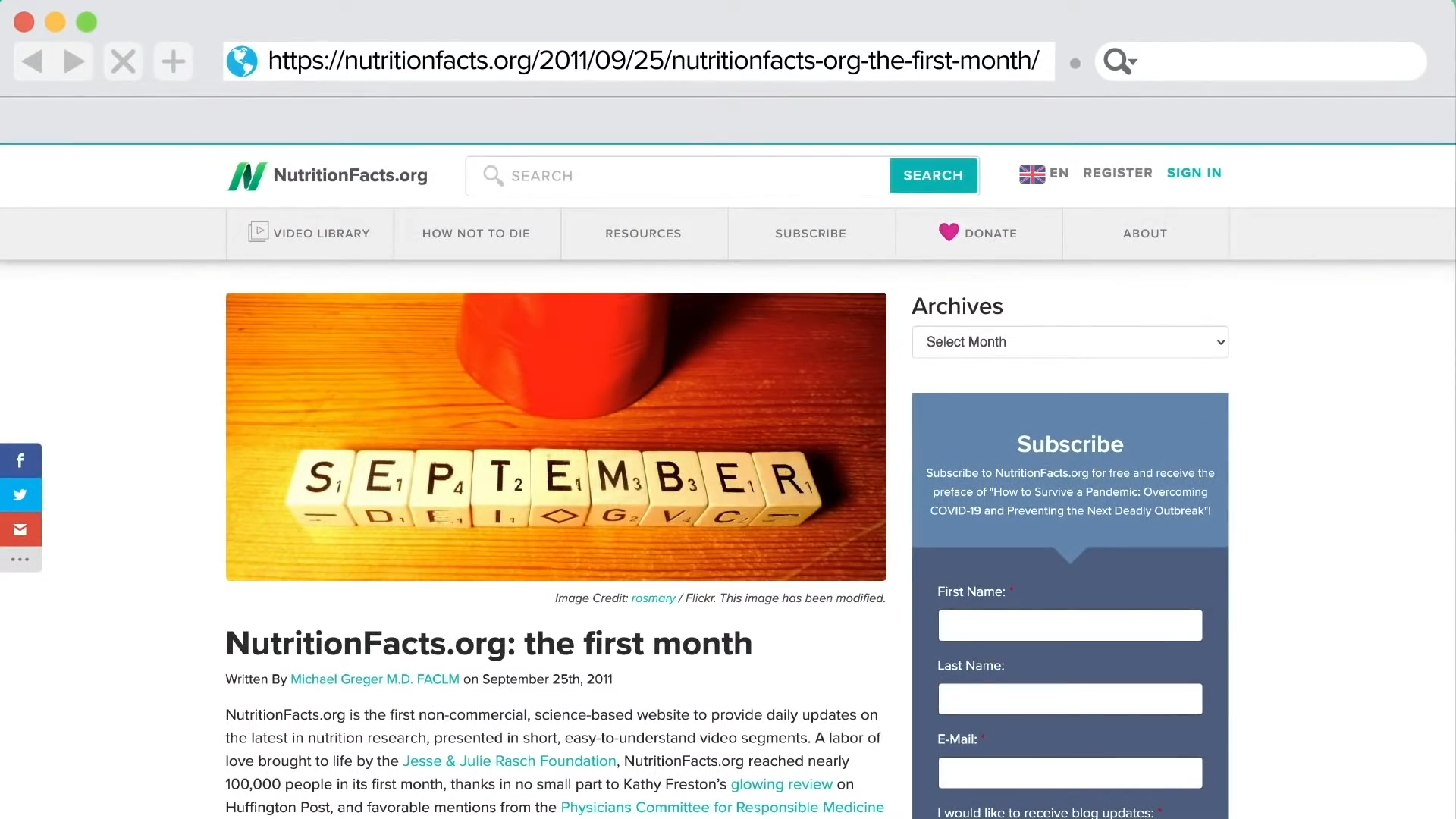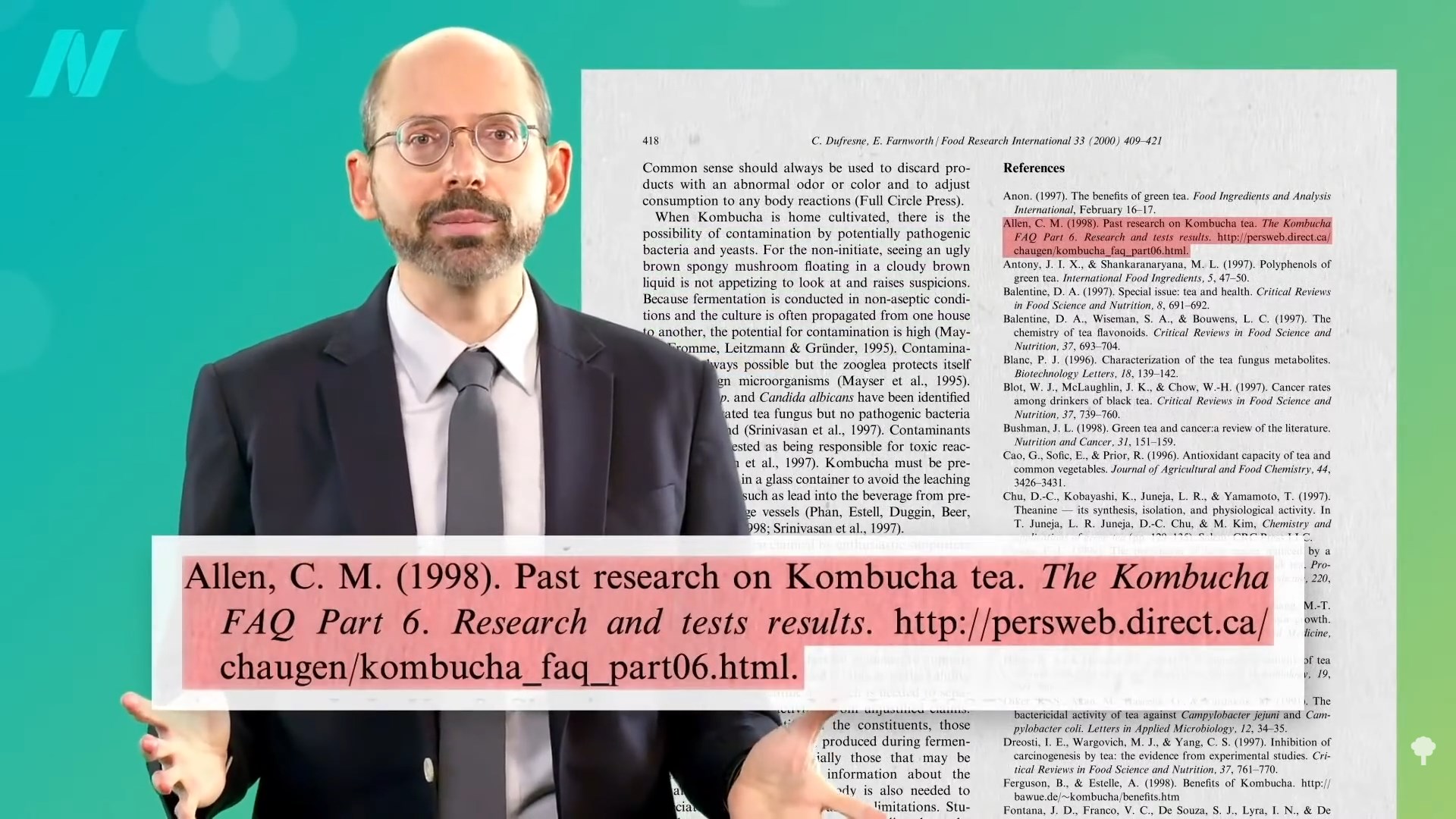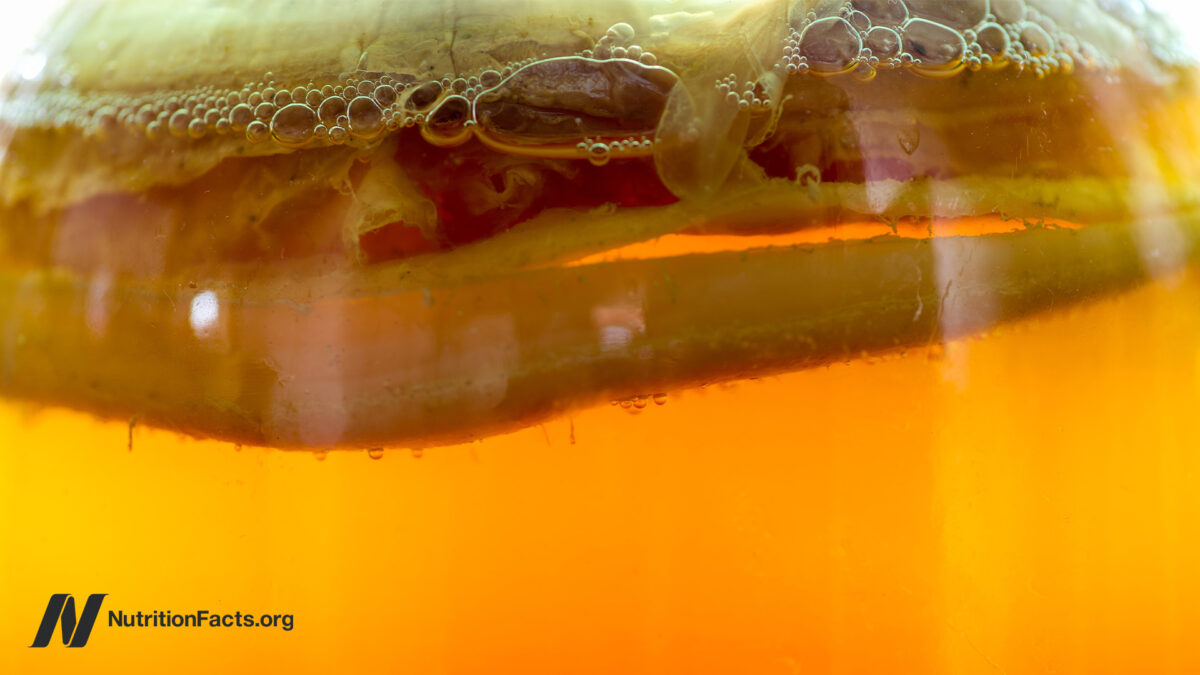What are the risks versus benefits of drinking kombucha?
Is Kombucha Tea Good for You? is one of my first videos. It was featured in a blog entry entitled “NutritionFacts.org: the first month,” where I marveled the video had reached nearly 100,000 people. You can see it below and at 0:20 in my video Kombucha’s Side Effects: Is It Bad for You?. I’m honored to say that we now reach more than 100,000 people a day.

In that first kombucha video, I profiled a report published in the Journal of Intensive Care Medicine of “a case of kombucha tea toxicity” in which a young man ended up in an acidotic coma. The authors concluded, “While Kombucha tea is considered a healthy elixir, the limited evidence currently available raises considerable concern that it may pose serious health risks. Consumption of this tea should be discouraged, as it may be associated with life-threatening lactic acidosis.” And this was just one of several case reports of “serious, and sometimes fatal, hepatic [liver] dysfunction and lactic acidosis within close proximity of ingestion.”
For example, there were two cases in Iowa of severe metabolic acidosis, including one death. There was also a triggering of a life-threatening autoimmune muscle disease that required emergency surgery and was “probably related to the consumption of a fermented Kombucha beverage.” Another patient presented with shortness of breath, shaking, and a movement disorder “after consumption of tea and no other medications,” and a middle-aged woman complained of xerostomia, dizziness, nausea, vomiting, headache, and neck pain,” and her symptoms recurred on reingestion of the tea. There was another case of severe metabolic lactic acidosis, as well as a case of hepatotoxicity (liver toxicity) that resolved after stopping kombucha.
Why these sporadic cases? Maybe some unusual toxins developed in a particular batch. I mean, it is a fermented product, so it’s possible there was just some contamination by a bad bug, like the time people smeared kombucha on their skin because they were told it had “magical healing power.” What it had instead was anthrax. So, even though such reports were rare, I concluded ten years ago that we should probably stick to foods that haven’t put people in a coma. But what about its risks versus benefits? Maybe kombucha is worth it. After all, it’s “reputed to cure cancer,” “eliminate wrinkles,” “and even restore gray hair to its original color”—as “marketed by alternative and naturopathic healers throughout the United States.”
“Currently, kombucha is alternately praised as ‘the ultimate health drink’ or damned as ‘unsafe medicinal tea.’” It’s been “claimed to be a universal wonderful drug…a potion which improves awareness and concentration, slimming, also purifying, regenerating and life extending.” Which is it? Is it “potion or poison?
Back in the 1920s, 1930s, and 1940s, there were several medical studies conducted by recognized physicians confirming all sorts of beneficial effects, as you can see below and at 2:55 in my video.

I couldn’t wait to read them. Dufrense and Farnworth were cited, and when I went to that paper, I saw the same claim, citing Allen 1998. When I went to that source, I saw the citation is for a random kombucha website, as shown below, and at 3:10 in my video. And guess what? That website’s been defunct since 2001, and “much of the Kombucha information” posted came from comments on some mailing list.

Finally, in 2003, a systematic review of the clinical evidence that had been published was conducted. “The main result of this systematic review, it seems, is the total lack of efficacy data…No clinical studies were found relating to the efficacy of this remedy.” We just have these cautionary tales, these case reports. So, based on these data, it was concluded that the largely undetermined benefits do not outweigh the documented risks of kombucha. It can therefore not be recommended for therapeutic use.” That was back in 2003, though. How about a 2019 systematic review of the empirical evidence of human health benefit?
“The nonhuman subjects literature claims numerous health benefits of kombucha,” with “nonhuman” meaning mice and rats. We need human clinical trials, yet there is still not a single controlled human study. (I did find one uncontrolled study purporting to show a significant reduction in fasting and after-meal blood sugars among individuals with type 2 diabetes, though, as seen below and at 4:19 in my video.)

“Nonetheless,” despite no controlled trials, “significant commercial shelf space is now dedicated to kombucha products, and there is widespread belief that the products promote health.” So, we are left with this extreme disparity between science and belief: “There is no convincingly positive clinical evidence at all; the [health] claims for it are as far-reaching as they are implausible; the potential for harm seems considerable. In such extreme cases, healthcare professionals should discourage consumers from using (and paying for) remedies that only seem to benefit those who sell them.”
Doctor’s Note:
Friday Favorites: What Are the Best Beverages? Watch the video to find out.
